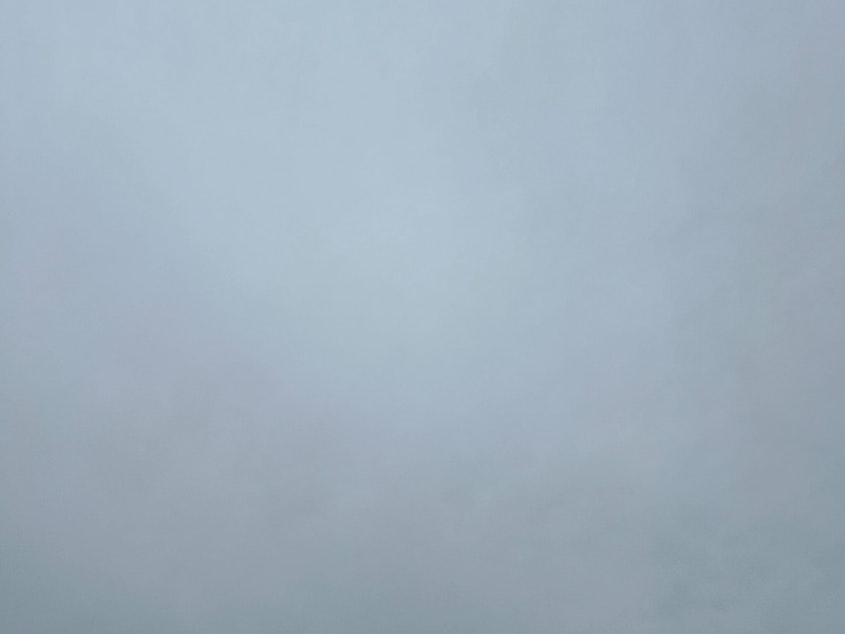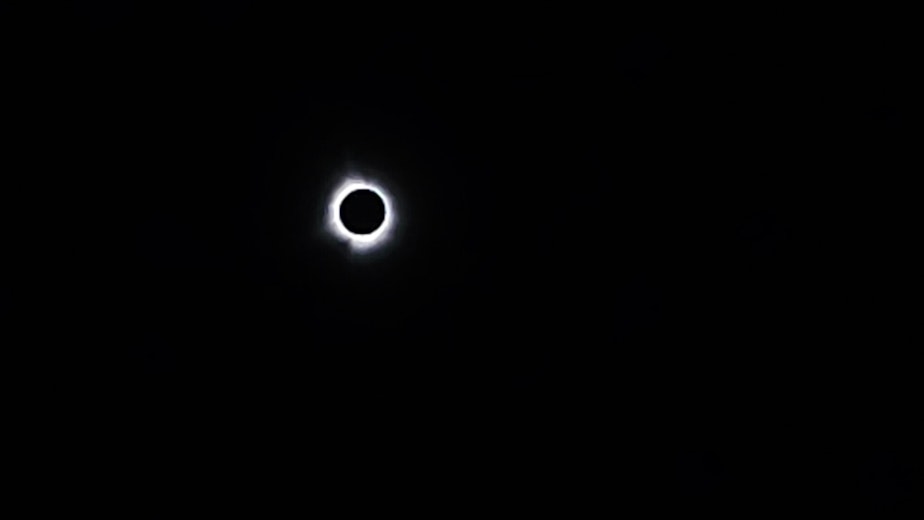Subtle Seattle eclipse show couldn't outshine local enthusiasm

Seattle’s cloudy weather made for an anticlimactic viewing of Monday’s solar eclipse. Still, that didn’t stop dozens of people who flocked to the University of Washington’s Physics-Astronomy Building, hoping for the clouds to lift, so they could catch a glimpse of this once-in-a-generation event.
RELATED: From across the path of totality: Reactions to the solar eclipse
Oliver Fraser, a UW professor of astronomy, was thrilled to see many people show up. In ancient time, he said, eclipses were more mysterious.
“I completely understand why people would be absolutely frightened by an eclipse,” Fraser said. “They weren’t expecting it. Because we depend on the sun so much, you never want to see that just suddenly disappear.”
Sadly for people in Western Washington, there wasn’t much to see. But it was an opportunity for people who are curious about our solar system. And for amateur astronomers, it was an opportunity to promote a lifelong passion.
“There’s so much happening outside your front door… that you can’t see,” said Jon Bearscove of the Seattle Astronomical Society, or SAS.
Bearscove brought his laptop that showed NASA’s livestream of the eclipse. Instead of looking at the sky, Bearscove and a fellow SAS member were fielding questions from visitors, many of them young people. And that was fine by them. They hope the eclipse will encourage young people to study the stars and planets.
RELATED: Scientists get another chance to study a solar eclipse mystery
UW junior Giovanni Gollotti said the eclipse is the perfect condition to observe solar flares — powerful explosions of electromagnetic radiation from the surface of the sun.
“This is the only time where we can really see how far the flares can go,” he said.
Seattle viewers had to vicariously experience the eclipse with footage from the East Coast — like Soundside editor Jed Kim, who made an eclipse trip.
Listen to his experience here.
Soundside 20240408 Eclipse
Soundside Editor Jed Kim headed up to upstate New York to be in the path of totality for the 2024 solar eclipse.
And in this digital age, it was easier than ever to share the experience from afar. (Check out photos from friends and family of KUOW below.)
The next total solar eclipse isn’t expected to happen again until 2044.
Hopefully then, the weather will cooperate.

 1 of 4
KUOW's Kelsey Tolchin-Kupferer shared this photo from her brother, who witnessed the total solar eclipse on April 8, 2024, from Illinois.
1 of 4
KUOW's Kelsey Tolchin-Kupferer shared this photo from her brother, who witnessed the total solar eclipse on April 8, 2024, from Illinois.

